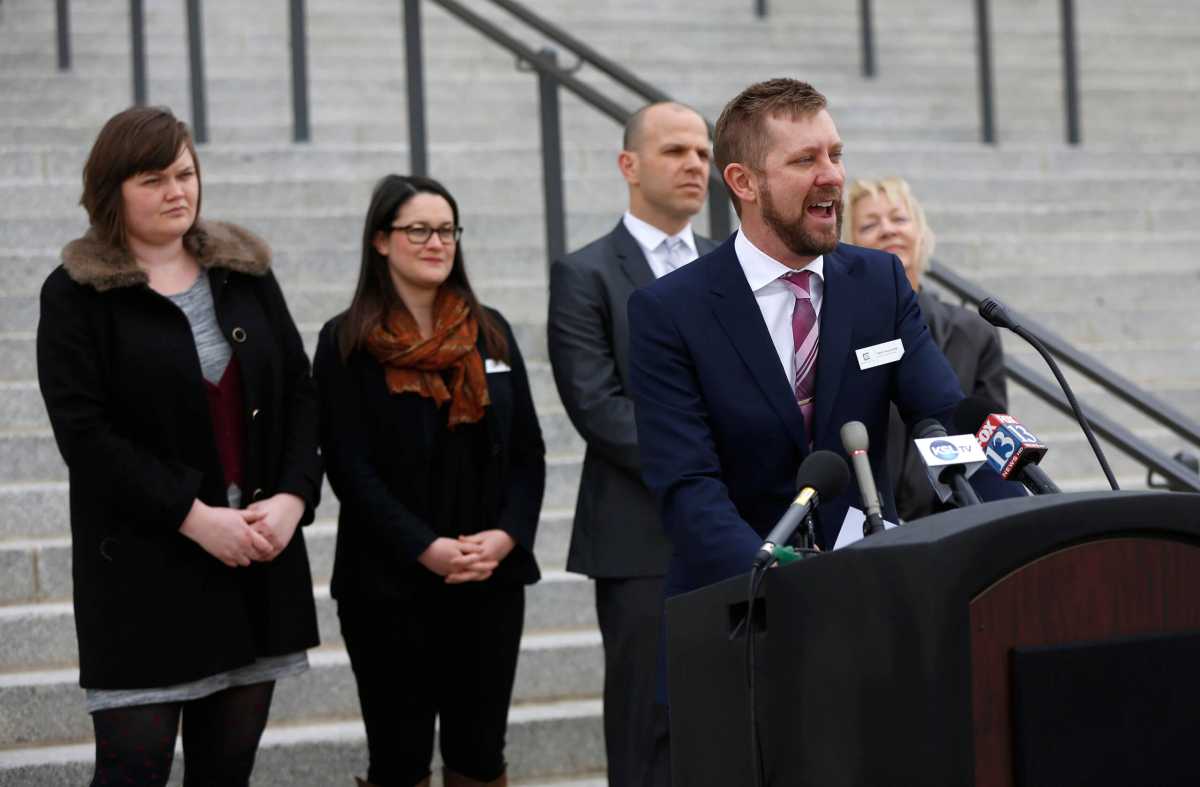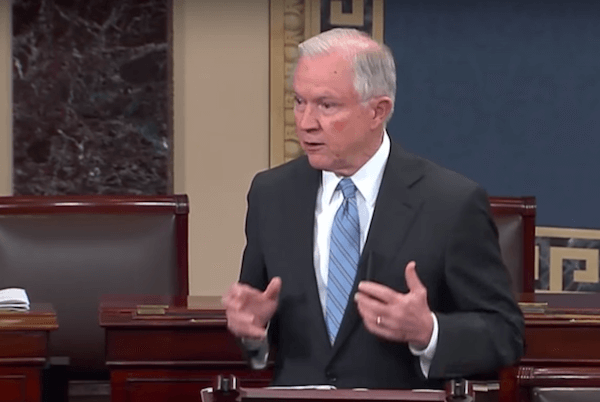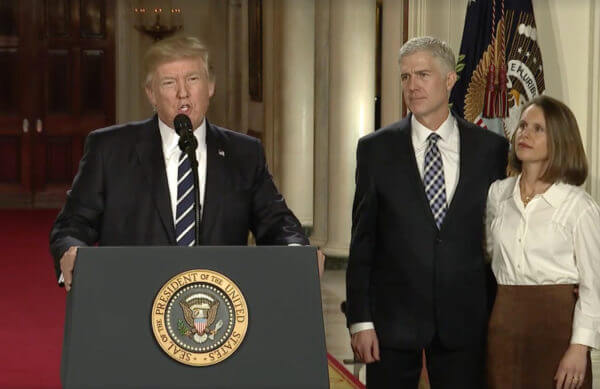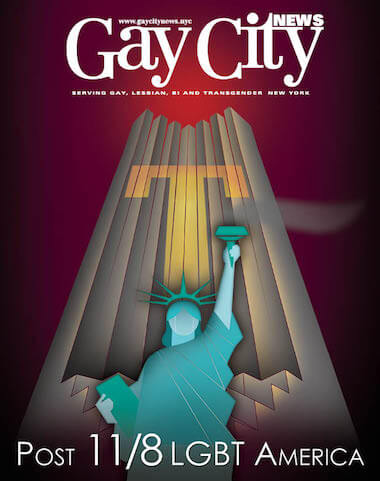More than six years after Utah added sexual orientation and gender identity as protected classes to its anti-discrimination law and drew criticism over the law’s already broad religious exemptions that were expanded in the amended law, data from Utah’s anti-discrimination agency show that Utahns are using the law to push back against discrimination in employment and housing and that the agency has likely not adopted an expansive view of the law’s religious exemptions.
“We are pleased to see that the [Utah Antidiscrimination and Labor Division] is investigating complaints based on sexual orientation and gender identity,” Clifford Rosky, a law professor at the University of Utah and a member of the Equality Utah Advisory Council, wrote in an email. “While it’s hard to generalize based on the small numbers, it appears that the UALD is investigating and resolving LGBTQ-related complaints in the same manner it handles other types of discrimination complaints. This is exactly what is required by the Utah Antidiscrimination Act — the equal treatment of all Utahns, regardless of race, sex, religion, disability, sexual orientation, and gender identity, among other traits.”
The Utah Antidiscrimination and Labor Division (UALD), which enforces that state’s anti-discrimination law, has heard cases ranging from 20 employment complaints based on sexual orientation and two based on gender identity in 2016 to 21 employment complaints based on sexual orientation and 11 based on gender identity in 2021.
None of the employment complaints in any year from 2016 through 2021 were dismissed at the investigation stage, the earliest stage. Mostly, the complaints in all years were dismissed at the “investigation stage due to lack of merit finding.” That is typical of complaints filed with the local and state agencies that investigate employment discrimination cases and the federal Equal Employment Opportunity Commission (EEOC). While complainants believe they have experienced discrimination, state and federal laws require evidence beyond a sincerely held belief.
“Sometimes things are real offenses to an individual…that don’t end up amounting to what is impermissible,” said Sarah Warbelow, legal director at the Human Rights Campaign, the nation’s largest LGBTQ advocacy group. “Every agency…is going to dismiss complaints simply because there is inadequate evidence.”
But the Utah employment complaints also appear to be more likely to settle at the “investigation stage without merit finding,” at the “investigation stage with merit finding,” or to be “resolved through other means.” From 2016 through 2020, anywhere from 30 percent to 48 percent ended with a settlement or were “resolved through other means.” Most of the 2021 complaints have not been resolved.
The UALD data was released in response to an open records request. The employment complaints are not public records so Gay City News has only the number of complaints filed in each of the six years and all outcomes in 2016 through 2020. That data show that employment complaints typically involved more than one charge with people alleging discrimination based on multiple protected classes.
A settlement could mean the complainant received an apology, reinstatement in a job, or a financial award, but those records are not public. Assuming the classic definition of settlement, which means that every party in the dispute got something, but not necessarily everything they wanted, the UALD data suggest that complainants won something.
The housing records were more complete, with Gay City News receiving data on complaints filed in 2016 through 2021, the resolutions, and detailed histories of each case, including the names of the complainants and those accused of discrimination. One housing case indicates that the UALD has not adopted a sweeping interpretation of the law’s religious exemption.
In 2018, a gay man charged that a mother and daughter who rented rooms in two homes to formerly incarcerated people had thrown him out because he is gay. The rental agreement included text that said “Homosexuality in either gender” was prohibited and “Any infraction of these rules is grounds for immediate termination of Tenancy and deposit is forfeited.”
In their filings with the UALD, the mother and daughter, who are members of the Church of Jesus Christ of the Latter-day Saints, or the Mormon church, wrote that “the agreement I had them [tenants] sign was reflective of my values as an active LDS member.” They also wrote that the “only acts prohibited on the properties is sexual activity between the persons of the same sex.”
The UALD found for the man and required the mother and daughter to pay just over $7,200 in costs and attorney’s fees and a $1,000 civil penalty. They also had to complete training on the law and produce new rental agreements that complied with the anti-discrimination law.
There were six housing complaints based on sexual orientation in 2016 and three based on gender identity that year. There were two housing complaints based on sexual orientation and no complaints based on gender identity in 2021. The highest number of housing complaints came in 2019, with seven complaints based on sexual orientation and none based on gender identity. Like the employment complaints, the housing complaints tended to settle or be dismissed at the investigation stage.
In 2008, the Mormon church was the driving force behind passing Prop. 8, a California ballot initiative that barred the state from issuing marriage licenses to same-sex couples. The outcry from the LGBTQ community was swift and loud across the country. The church was already facing slowing membership growth and an increase in members who are more liberal. The church began conversations with Equality Utah, the state’s LGBTQ group, soon after 2008, according to a video titled “How Utah Passed LGBTQ & Religious Freedom Legislation” that was released at a December 2021 webinar sponsored by the Bipartisan Policy Center, a think tank in Washington, DC.
The meetings that began after 2008 eventually led the church to agree to add sexual orientation and gender identity to Utah’s anti-discrimination law in 2015. The protections for LGBTQ Utahns bar discrimination in employment and housing, but not public accommodations. The law already exempted all entities — for-profit and non-profit — that are owned by or affiliated with religious organizations. In Utah, the Mormon church dominates the social and economic life in the state. The amended law expanded the religious exemptions.
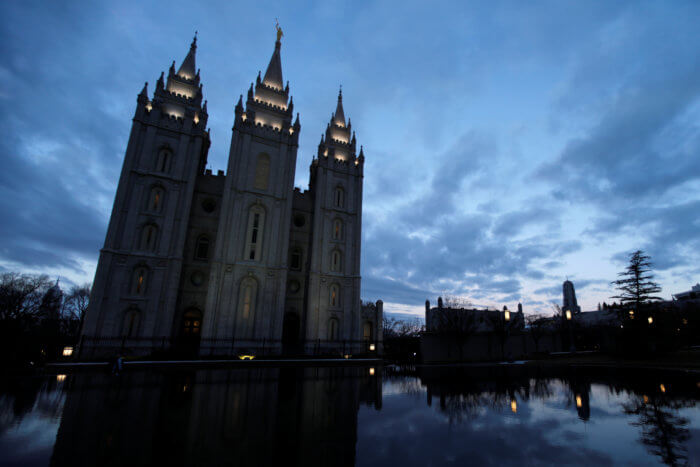
While some LGBTQ groups and the mainstream press celebrated the Utah win, Queer Nation issued a press release, which I wrote and distributed to the media, pointing out the law’s flaws and that the major contributor to the law had longstanding relationships with leading anti-LGBTQ advocates.
In 2015, some voices that supported the Utah legislation changed their views to say that the law was not a model for other states, but that the process of engagement with religious conservatives should be followed.
“It’s absolutely not a model law for other parts of the country,” said Jennifer Pizer, senior counsel at Lambda Legal, a LGBTQ rights law firm. “It doesn’t address all of the areas where LGBT people need protection. It’s been more of a social and political sea change, not a legal advance.”
Given the limited UALD data, advocates said that it was hard to draw any conclusions beyond that the law was being used and the UALD appeared to be doing its job effectively and fairly, though they also say that discrimination against LGBTQ people is underreported.
“I think it’s an important signal that the agency is taking discrimination against LGBT folks seriously,” said HRC’s Warbelow. “The law is doing what it is supposed to do, which is to deter discrimination before it happens.”
Last year saw the reemergence of voices calling for a Utah-like compromise on state and federal legislation that bans discrimination based on sexual orientation and gender identity.
The American Unity Fund (AUF), a political group that was founded in 2013, has consistently argued for compromise federal legislation, such as the Fairness for All Act, that would bar discrimination against LGBTQ people, but includes religious exemptions that are broader than those in the Civil Rights Act of 1964, the nation’s premiere civil rights law. The Equality Act, which was first introduced in Congress in 2015, would add sexual orientation and gender identity to the Civil Rights Act.
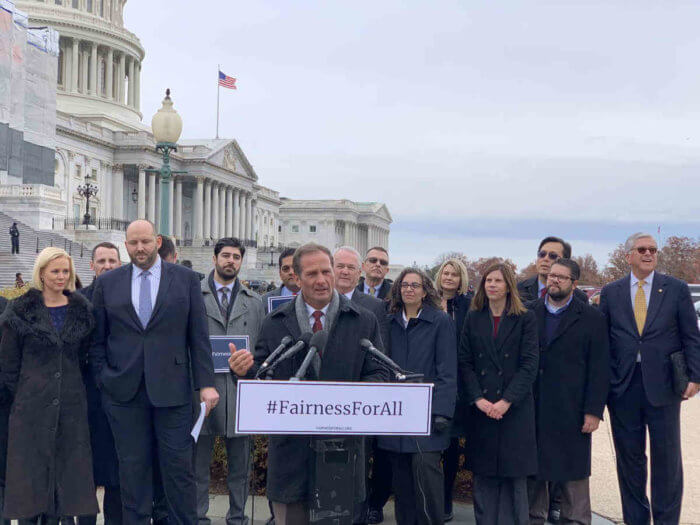
The AUF is part of the Equality & Fairness for All Americans Coalition. On December 1 last year, the coalition issued a press release announcing it would “advance federal civil rights protections for LGBTQ Americans in employment, housing, credit, education, jury service and public accommodations” and wanted to end “the partisan gridlock that has stalled equality efforts in Congress.”
The coalition held a webinar on January 12 during which members said that compromise legislation could pass in Congress in 2022 and that this opportunity may not arise again for 10 years. Activists believe that redistricting, which occurs every 10 years, will favor Republican control of the House and that the distribution of Senate races beginning in 2022 will also favor Republicans.
“This may be the last opportunity to pass bipartisan legislation for the next decade,” Angela Hughey, the president and founder of ONE Community Arizona, a civic group and member of the coalition, said during the January 12 webinar.
“I don’t think that it’s the Utah law that is the model; I think it’s the approach,” said Tyler Deaton, an AUF senior advisor, during the webinar sponsored by the Bipartisan Policy Center. “The Republican support is there, but we have to meet Republicans where they are, as we did [with the Employment Non-Discrimination Act], as we’ve done in Utah…They want to protect LGBT people and religious freedom at the same time.”

